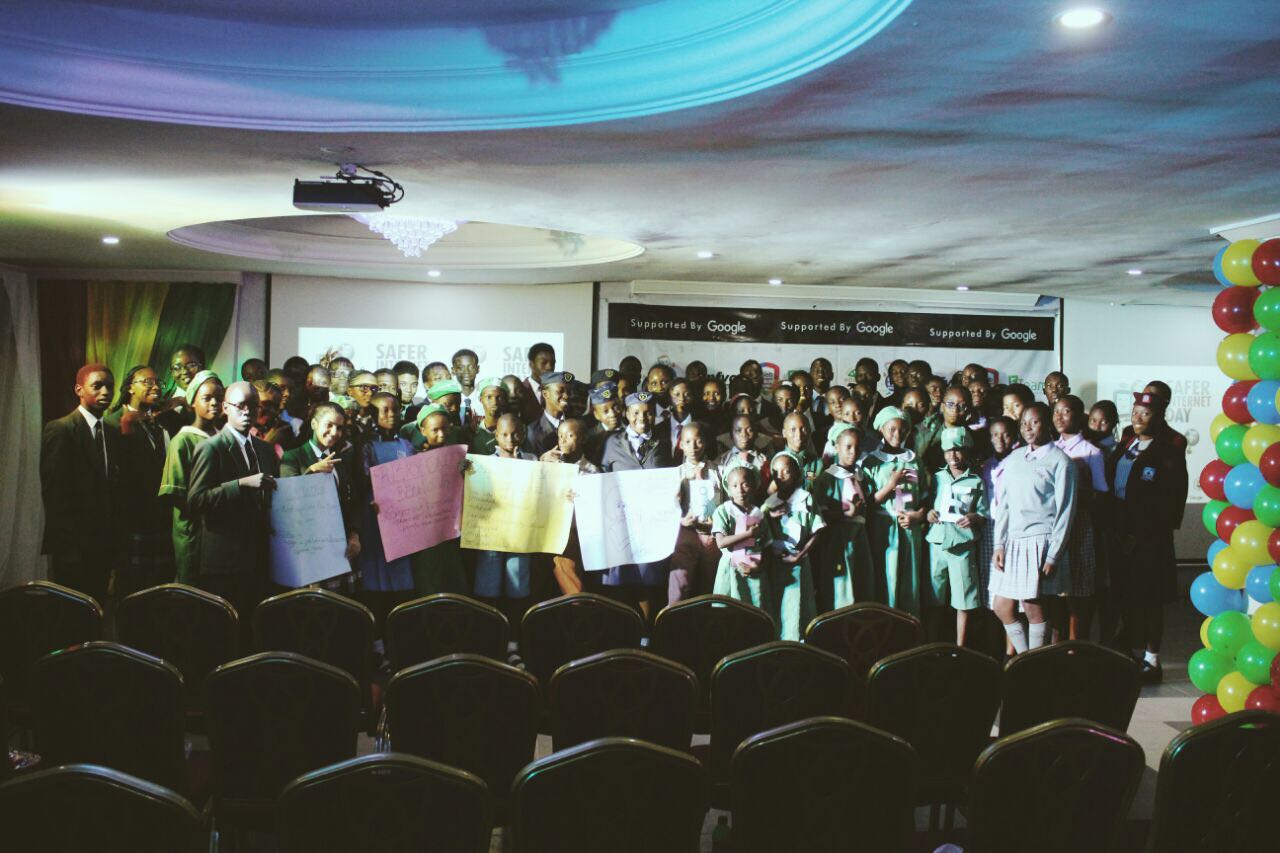For the third year running, Google Nigeria has partnered the National Film and Video Censors Board (NFVCB) and Nigeria Integrity Film Awards (Homevida) to train 200 secondary school students in Lagos on safer internet use.
The event, which held at Virgin Rose Resort, Lagos, on Tuesday, February 7, was to commemorate Safer Internet Day 2017 themed, “Be The Change: Unite For A Better Internet”.
The Safer Internet Day has since 2004 been celebrated globally on the second day of the second week of the second month yearly to promote safer and more responsible use of online technologies, now including mobile internet.
Google’s Policy and Government Relation’s lead, Titi Akinsanmi-Bolarinwa, said at the event that the technology giant was sponsoring the same effort to raise online safety awareness among young people in 15 different countries including Nigeria, an increase in last year’s figure of 10 countries.
She said Google was seeking to expand its Web Rangers programme, which is a campaign launched in 2016 to empower a set of young ambassadors promoting a culture of internet literacy and safety among their peers.
Akinsanmi-Bolarinwa charged the participating students to beware of sharing personal information on the internet which could later be used against them and seek their parents’ guidance when exposed to bullying and other unwholesome behaviour on the internet.
Earlier, the Chief Executive Officer of Homevida, Seember Nyager stated that the event was to promote the idea of self-regulation and policing, noting that though the internet promotes freedom and opportunities but with freedom comes responsibility.
“Whilst we want to make sure that the internet remains free, it is our responsibility as users of the internet to make sure we promote safety and the way we can do it is through something called self-policing, self-regulation,” she said.
Also speaking, the Zonal Coordinator, North Central of NFVCB, Mr Ailewon Paul Danlami noted that the board, as regulator of the film industry, was constantly strategising and partnering with relevant bodies to promote better use of online technologies and had initiated internet safety advocacy programmes in schools across the North Central zone of the country.
“We are looking forward to setting up an e-learning centre for schools out to access the internet within the zonal office in Jos,” he added.
Furthermore, the zonal coordinator said that the body was exploring ways to make parents take more responsibility for guiding their children’s behaviour on the internet as a way of guiding against access to pornographic materials and other risks posed to teenagers by exposure to online technologies.
He said the campaign to promote responsible use of the Internet had taken the body to various fora, religious centres and social gatherings across the zone.
While harping on the dangers inherent in irresponsible use of the internet, Danlami said, “There is a particular issue I am handling now that was sent to me from Makurdi. Somebody shot a pornographic movie in Makurdi at the beginning of this year or thereabout.
“Before you know it, the thing was on the internet and two of the ladies that participated in the movie never knew it was porn that was being shot; they were deceived into it.
“Now the two of them are supposed to be getting married and their fiances have broken up with them. Now, we are trying to track the producer.
“It is not in DVD format, it’s not in CD format; it’s online.
“So, that’s the challenge we have and that’s how dangerous the internet can be if care is not taken.
“What we are doing is trying to create awareness where people can safeguard themselves, safeguard their kids, and let people know the dangers inherent in using the internet.”
Originating in Europe, the Safer Internet Day has since spread to over 110 countries worldwide, with thousands of people involved in events to promote safer Internet use.
The participating students at the event engaged in interactive fun and educative activities like the balloon challenge, quiz and debates.

